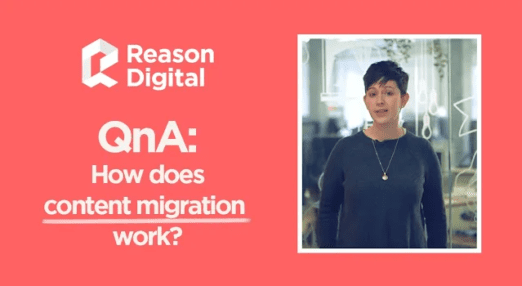Why you should care about content
Is your website not attracting the visitors you thought it would, just because you don’t understand the importance of your content?
There’s a saying that goes: “Don’t judge a book by its cover.” But it’s not just about books.
It also applies to websites.
Imagine that Google is your bookshop, and your search results are the spines turned out to face you, to the genre that was your search. You scan your eyes, looking for the right match and you’ll pick up a few and give them a closer inspection. A lot of the time, you’ll be drawn in by a great front cover, or in the case of a website – a great design.
But sometimes, the elaborate ‘cover’ that sucked you in was a trick. You’ve got something that’s great to look at, but not all that great to read. You don’t recommend it to friends. You don’t shout about it on Twitter. You don’t pull it off the shelf to read again. You let it gather dust, while you move on to another book that ticks all of the boxes.
And while I could continue with this book analogy for the entirety of this post, I won’t, because I’m sure you can understand what I’m getting at.
That book could be your website. And it could be you that’s gathering dust on that shelf.

A well-crafted site, with a great design and everything working as it should, is a step forward in the right direction when it comes to gaining traffic, exposure, support and more. Of course you want it to be responsive, adhering to accessibility regulations, and all-singing and all-dancing, but content shouldn’t be a bolt-on, an afterthought, or something that is rushed last-minute.
Your content is ultimately what your users are going to your site for. You can dress it up however you like, but if your message is dull, peppered with errors, and longer than the Yellow Pages, your users are going to lose interest pretty quickly.
Content, as they say, is King, so why is it so often treated as the third in line to the throne?
Writing for content doesn’t just require a copy of Word and the ability to construct sentences. That content should be the very thing that shapes the rest of your site. A confident vision for content from the start, will allow agencies like us to design a much more effective website around what you want to communicate, instead of adding it as a bolt-in at the last minute.
So what should you be thinking about?
User Journeys
The 80/20 Rule
This might not be anything new, but the 80/20 Rule is something that should be the first thing you think of when you put fingertips to keys and start writing. Only 20% of your content should be about your organisation and your need. The rest should be for your users – which means it’s about the cause, not you.

Write Responsively
There are five times as many mobile phones than PCs in the world, which means you need to think now, more than ever, about how this content of yours is going to be read on a mobile or tablet. The smaller the screen, the bigger the scroll and the longer your content, the less likely your users will stay engaged until the end. A popular phrase on the web these days is TL;DR – “too long; didn’t read” – remember it.
Sweat the Small Stuff
When it comes to microcopy, the phrase “small but mighty” rings true. These tiny words have a huge impact on conversions. They aren’t just space-fillers, or an opportunity to talk at people. They are integral to the way people use your site. You should consider context, tone and purpose – these small bits of text have the opportunity to sum up what a particular site or page is about and inspire action. Use them wisely. And if you’re unsure, try some A/B testing and see the effect that the right words can have on your analytics and conversions.
Establish Your Voice
Does your website sound as though it switches from “phone voice” to “drinks with friends” quite a lot? If you haven’t decided on your voice and tone, especially when there are multiple contributors involved, you’ll have a website, and ultimately an organisation that doesn’t seem clear on its own message.
Regular Content
As tempting as it is, don’t just add a News or Blog section to your site if you can’t commit. Regular content is great – Google loves it, and so do your users, but if your last blog was November 2013, your site can look stale and lacking-in-effort.
These are just a few examples of the power the content can have. Small changes in microcopy can make a difference between a purchase or donation, and someone clicking the big ‘X’ in the right-hand corner. A powerfully-written blog post, that’s well-researched and unique has every bit of potential to go viral. A page of your site, with user journeys fully considered can actually help someone and lead you to be recommended by word-of-mouth, whether that’s digitally or face-to-face.
And we all know that it’s not just about how things look, or how well things work, it’s about the message. Because without a good message, you’re just another book, judged on its front cover, but let down by its plot, and then put on back on Google’s shelf.
More on content
-

12 tips on social media advertising for charities during COVID-19
As the coronavirus crisis continues, I'm seeing a flurry of social media adverts from charities flooding my timeline and feed. But how do you get your charity heard above all the noise? I've been taking note (and screenshots) as social media becomes more and more saturated with charity adverts. I’ve collated a quick list of tips on how to best get your charity noticed on social plus any potential pitfalls that may arise.
Find out more
-

QnA: How does content migration work?
When it comes to being a charity and exploring the potential of digital, sometimes it can be the simple, straightforward questions that are hardest to get answers to. At Reason, we've decided to put an end to that. We answer the question, how does content migration work?
Find out more
-

21 winning charity blog post ideas
The key to a successful charity blog is that the benefits work both ways. You publish interesting, inspiring and useful content about your cause which in turn attracts people with an interest in your field to your blog, website, brand and, hopefully, your supporter base.
Find out more



